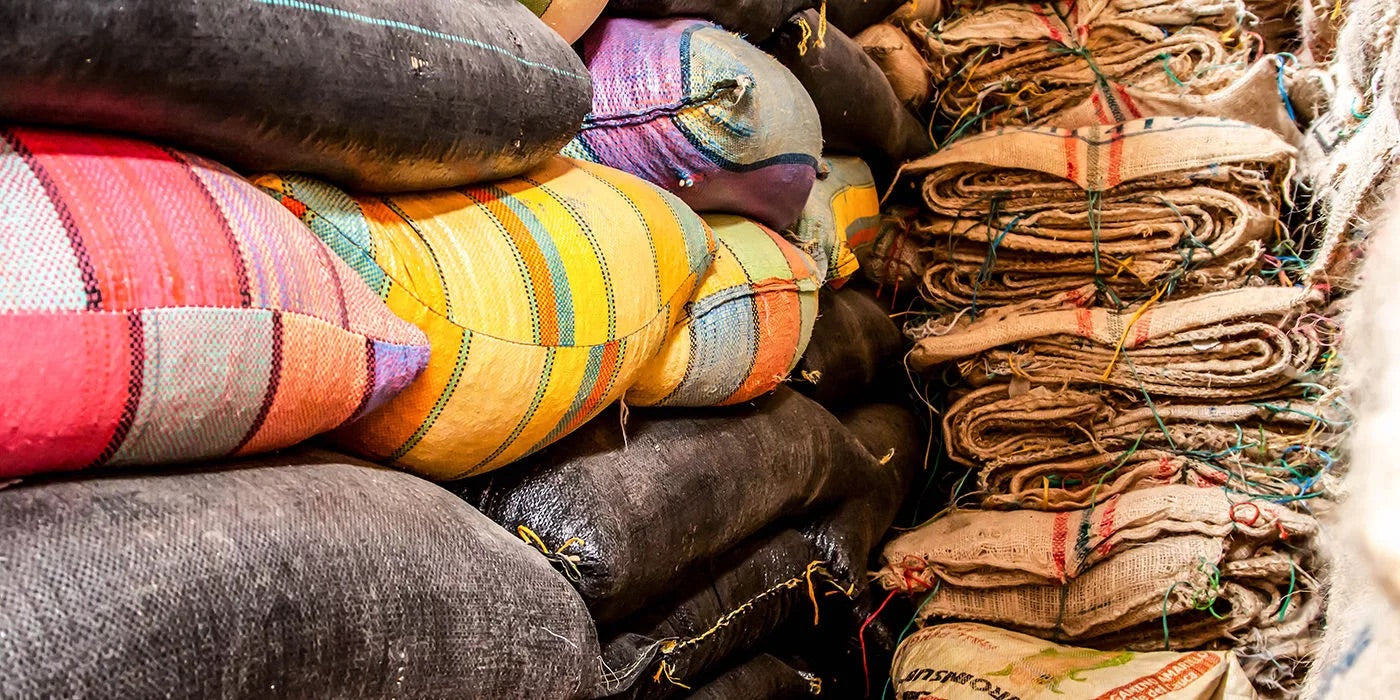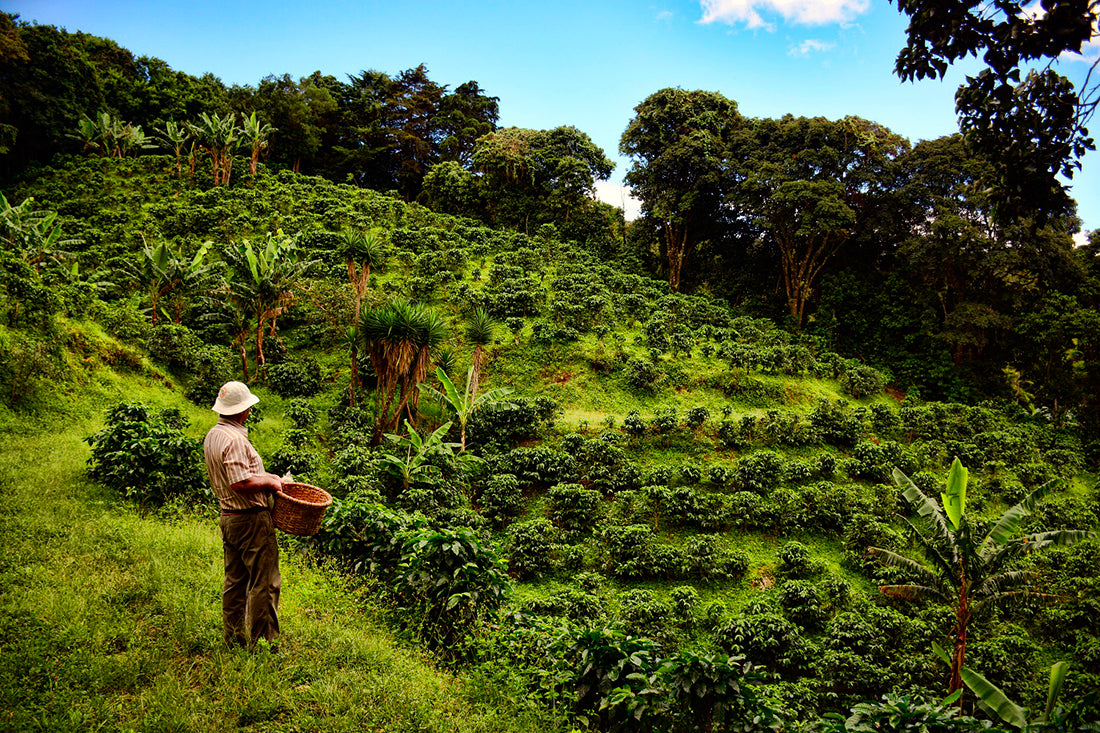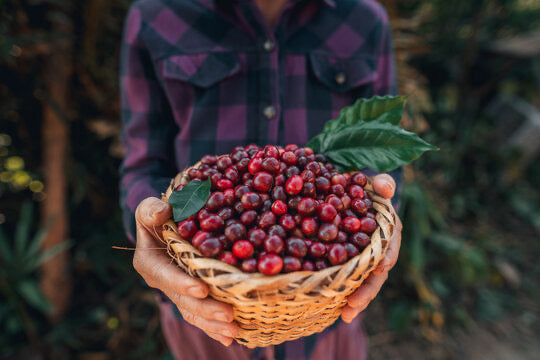The Farms
columbia
The team at CENCOIC Co-Operative have always been incredible to work with. Founded with a link to CRIC, the local community police force in the Cauca Department in the south of Colombia, they’re committed to improving the safety and prosperity of the area after years of guerilla fighting created by the international drug trade.
La Laguna is a collection of twelve families and their individual farms, called collectively the ‘Manantial Association’. Each family looks after their own smallholder farm, including picking, pulping and drying, before grouping together the entire harvest into the Laguna we know and love.
Unlike other farms in the surrounding areas, Laguna is grown almost entirely under shade. Farmers are also strongly encouraged to produce their own fertiliser from natural materials.
The varietals are typical of Colombia as a whole, except for the very special F6 - this is created by selectively breeding the absolute best and biggest Castillo cherries at their peak of six years, for six generations. All coffee is washed, fermented and dried by each farmer, with generally an 18-hour fermentation stage dependent on heat, and then dried for around 15-25 days. We feel very lucky to work so closely with not just an outstanding farm, but a brilliant cause, too.
Costa Rica
Founded in 1960, Tarrazú is now accepted as one of the best groups in Costa Rica, and (incredibly) is still run by farmers. In the last fifteen years, there’s been an increase of 50% in the number of partners that they work with, which has increased production by 70%.
El Canet is a community within the San José region, comprising just 46 producing families with smallholder lots. The cooperative offers farmers terms of credit, technical support, preferential pricing for supplies, and fertiliser created from the waste of multiple farms in the area. Alongside upcycling the discarded coffee pulp into natural fertiliser, the co-operative also provides coffee trees for maintaining crop health, agronomy support, and has an office run entirely on solar panels.
The Tarrazú Region, in the Los Santos Zone, within the San José Province produces around 40% of the national total every year. The vast majority of the farms in this area are grown under shade, allowing for slower ripening of coffee cherries and a greater intensity of flavour and sweetness. The climate and soil composition (sedimentary with some acidity) are ideal for producing exceptional coffee.
Honduras
COCAFELOL is a great example of the good that being a part of a co-operative can do. They’re dedicated and focused on promoting sustainable agricultural practices, which has resulted in the production of a huge amount of natural fertilisers made from coffee husks and natural fungi, which are then given to farms free of charge. The business behind the production and distribution of fertiliser was actually created through the funding provided by the Fairtrade premium.
The Ocotepeque Department is in the west of Honduras, a very mountainous area focussing largely on agriculture. Right on the border with Guatemala and El Salvador, and surrounded by several national parks, it’s a stunning area with perfect conditions for coffee growing.



